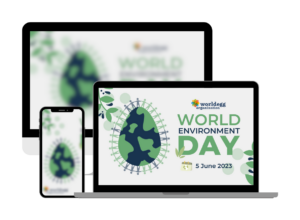World Environment Day 2023: Eggs for a Better Earth
Eggs are one of the most nutritious, naturally available food sources. Packed with minerals, vitamins and antioxidants, the egg provides much-needed nourishment worldwide. However, it is no longer enough to only consider the nutritional value of our diets.
Now, more than ever, the responsibility for the care of our planet, as well as our own health, is at the forefront of many people’s minds. In that respect, eggs can be considered the perfect ally to a nutritious and environmentally friendly diet – here are a few reasons why:
1. Low environmental impact
Eggs may be small, but their positive environmental impact is mighty! When compared to other popular protein sources, eggs use little water; nuts, for example, require over four times more water to produce per gram of protein.1
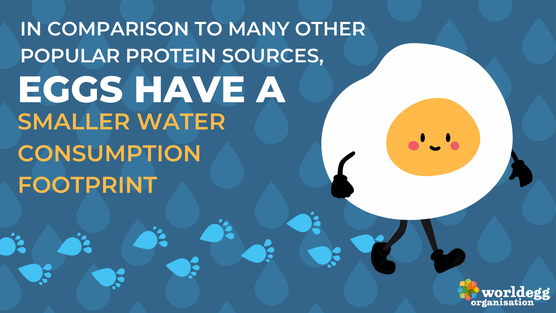
Research also shows that egg production creates fewer greenhouse gas (GHG) emissions per gram of protein than many other popular protein sources.2 This means that incorporating eggs into a balanced diet is incredibly nutritious AND supports the environmental sustainability of our planet.
2. Sustainable food source
It is widely known that eating local, seasonal food is beneficial for our earth. Eggs can be produced all over the world, regardless of the season, playing a role in making this possible!
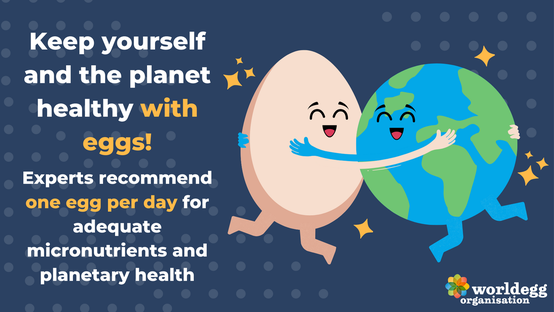
Recent research endorses the inclusion of eggs in our daily diets as a vital component of a human and planet-friendly lifestyle. The study advocates that adults should consume one egg per day, in order to receive adequate micronutrients for optimal well-being.3
Additionally, eggs create minimal kitchen waste, since only the shell is inedible for humans. Fortunately, the discarded shells are compostable, creating nutrient-dense soil for plants.4
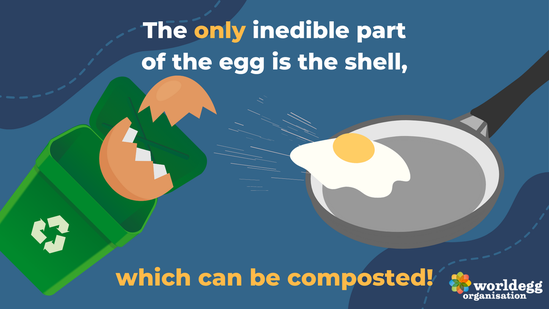
Embrace the extraordinary potential of eggs this World Environment Day with a widely accessible, highly nutritional food source where sustainability takes centre stage.
3. Evolving production practices
Before reaching your plate, sustainability measures for eggs begin at the farm. Egg farmers are taking important steps to minimise their impact by prioritising planet-friendly production with important progress being made around the globe.
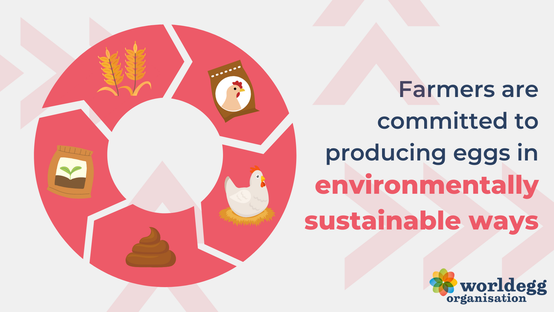
Last year, UK supermarket giant, Morrisons, introduced carbon neutral eggs. These eggs come from hens fed a soya-free diet of insects, which were themselves fed on supermarket food waste.5 This innovative approach eliminates carbon emissions from soya transportation and reduces deforestation caused by soya production. Research by Australian Eggs confirms that insect meal is one of the most viable soya alternatives, offering significant carbon footprint reduction.6
Thanks to advances in technology our ability to farm sustainably is becoming more widely achievable. An online sustainability tool has been developed for farmers in Canada to encourage further progression in reduced environmental impacts and the adoption of new, planet-friendly technologies.7 The National Environmental Sustainability and Technology Tool (NESTT) allows egg farmers to measure, monitor and manage the environmental footprint of their farms.8
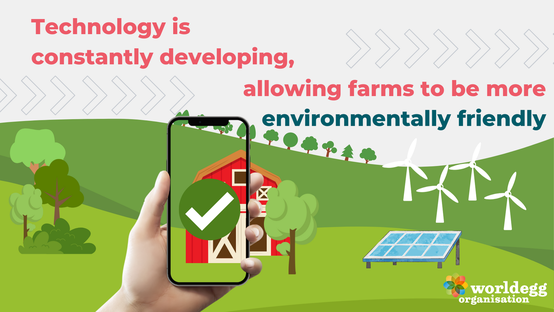
Additionally, a Netherlands-based egg producer has successfully up-scaled their circular model business that focuses on carbon neutrality, animal welfare and feeding laying hens on surplus food.9 The company’s expansion demonstrates the model’s profitability and viability.
Thanks to continuous innovation and advancement, egg farmers can ensure their product stays naturally nutritious, while constantly adding to the egg’s environmental credentials.
Planet-friendly protein
With their wide-ranging environmental benefits and efficient resource utilisation, eggs represent a conscious choice for individuals committed to a greener future. Choose eggs this World Environment Day, and beyond, to help forge a path towards a nutritious and sustainable tomorrow!
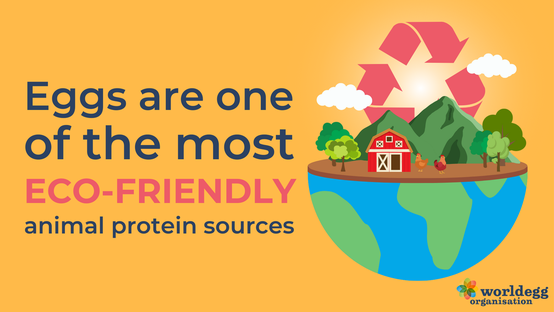
References
1 Mokonnen MM & Hoekstra AY (2012)
2 World Resources Institute (WRI)
3 Global Alliance for Improved Nutrition (2023)
9 World Wildlife Fund (WWF) (2023)
Choose eggs to help hatch a greener future!
The IEC has developed a social media toolkit to help you celebrate World Environment Day 2023 with eggs. The toolkit includes specially made sample graphics, video and post suggestions for Instagram, Facebook and Twitter, all ready to be downloaded and shared!
Download the World Environment Day toolkit (English)
Download the World Environment Day toolkit (Spanish)